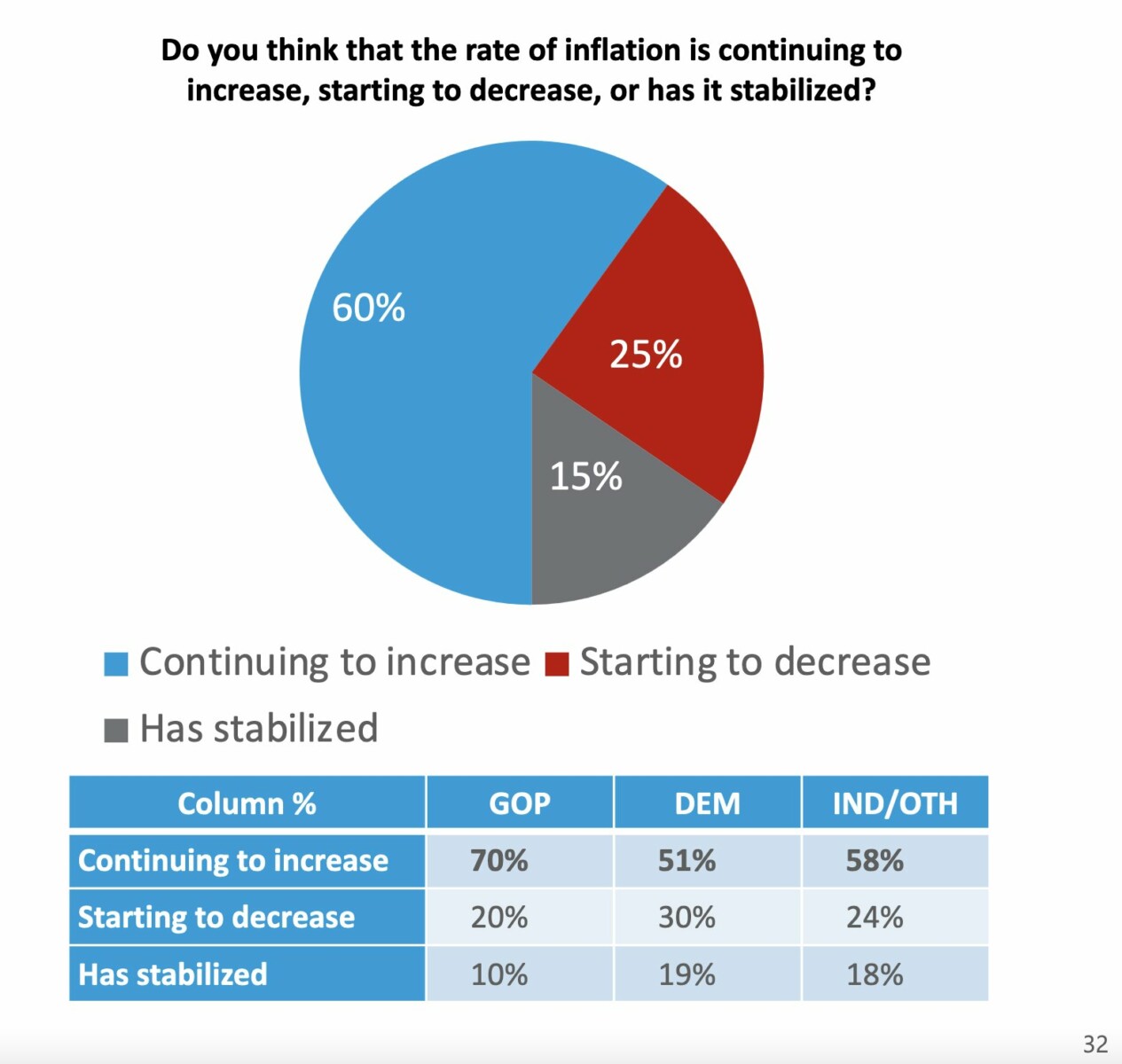It’s a summer Friday and nobody has the patience for a long rant about whatever foolishness is bothering me today. So instead, a quick note and a couple of charts reminding you that surveys in general are mostly nonsense, and sentiment surveys in particular are a special form of junk pseudoscience.
I have addressed this before (see this, this, this, this, and this), but in light of yesterday’s GDP upside surprise of 2.4%, and PCE falling to a 2-year, pre-inflation low, perhaps survey data deserves another look.
Monmouth College released a survey last week chock full of charts and data, but it was this graph that stood out to me:
“Some indicators suggest the U.S. economy has been recovering better than other countries from the worldwide instability and rising prices brought on by the Covid pandemic. However, just 30% of the American public believes that. In fact, 32% say the U.S. economy’s recovery from this situation is worse than other countries and another 33% say the U.S. recovery is about the same as the rest of the world.”
I love that people with little to no knowledge or experience about the economic strength of foreign nations have zero reservations about definitively opining on just that subject.
What about inflation, which peaked over a year ago and is now down to 3% on a year-over-year basis?
60% of respondents believe inflation is “continuing to increase.” My math is dropping from 9% to 3% is a decrease, but…
How about right/wrong track? Notice how much this changes around elections, implying people are not telling you what they actually believe, but rather, are revealing their partisan preferences.
The bottom line remains: People really don’t have much luck forecasting the future, they are easily persuaded by members of their own tribes, and they are less than accurate when it comes to understanding their own thought processes. Ask a simple question about the state of the economy or how they are doing, and the results are often a gnarly mass of contradictions.
Humans are unreliable narrators of their own stories.
Previously:
“Glass Half-Empty” Investors (May 8, 2023)
Is Partisanship Driving Consumer Sentiment? (August 9, 2022)
The Trouble with Consumer Sentiment (July 8, 2022)
Sentiment LOL (May 17, 2022)
Sources:
Biden Gets Little Economic Credit
Monmouth College, July 19, 2023
Harvard CAPS-Harris Poll (PDF)
July 2023



